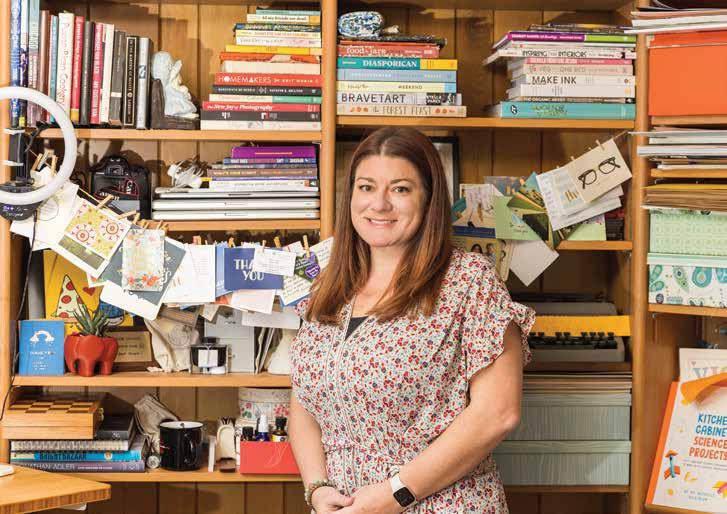
3 minute read
Planting Progress
By Lucy Lawler
Growing up, Laura Oldham’s only knowledge of landscaping came from mowing her parents’ lawn. Now her yard is an ever-growing, varied expanse of biodiversity.
When Oldham isn’t devising digital marketing strategies for clients of Starburst Media, a website development company she founded in 2010, she dedicates her time to protecting Earth’s future. Having practiced sustainable gardening and landscaping for over a decade, Oldham now helps others do the same.
“I have a lot of climate anxiety,” she says. “Rather than just allowing myself to spiral with going back and forth between despair and outrage, it’s nice to take action, and to be able to feel the soil in your hands and know that you’re putting nutrients back into it through gardening.”
Putting down roots
Oldham’s first brush with Columbus came the summer of 2011, when she and her husband Doug visited for ComFest weekend. Enchanted by the city’s youthful atmosphere, they moved from Chicago a mere two months later.
The couple initially lived in a Fifth by Northwest apartment; and around a year and a half later, they found the mid-century modern house of their dreams in Upper Arlington, Oldham says.
“Our realtor was like, ‘I almost don’t want to show you this house. It’s been sitting on the market forever, and no one wants it,’” she says. “And we pulled up and we’re like, ‘Oh my god, we love it!’”
Over the following years, Oldham took great interest in land stewardship, checking out countless books on the subject from the Upper Arlington Public Library. She took small steps towards an eco-friendly lifestyle, which included gradually replacing her grass lawn with native plants such as black-eyed Susans and purple coneflowers.
This “war on grass,” as Oldham calls it, combats the concerning decline of insect populations worldwide. Grass simply does not provide insects with enough shelter or sustenance to thrive, she says.
“We’re killing them and then ourselves in the process,” Oldham says. “We need those insects for the food web and to create all these different things. And we’re all tied together so precariously.”
Since so many Americans view their lawns as status symbols, Oldham hopes her yard inspires passersby to consider how lawn care can negatively impact local ecosystems.
“We’re fortunate in that our yard is at a visible spot,” she says. “And so that’s where my militant plant propaganda comes in, because I feel like I am mostly planting for pollinators and for our own joy, but it’s nice to know that so many people get to see it.”
A natural progression
In 2022, Oldham decided to flesh out her passion for green living by starting a second business, Return to Sender. This new endeavor aims to make sustainable landscaping a less intimidating and more accessible process, she says.
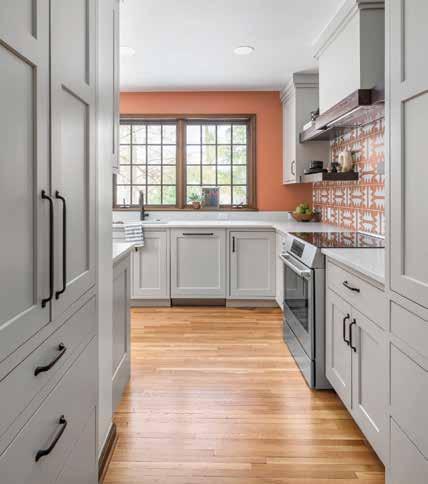
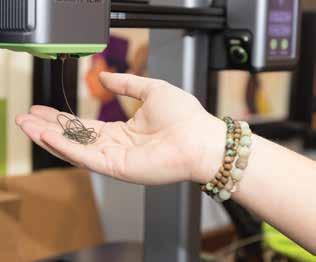
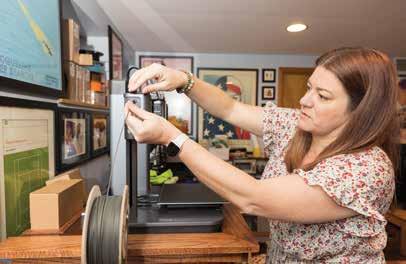
One of Return to Sender’s main products is homemade, plantable seed paper. Though Oldham sometimes made seed paper as a child, she got reacquainted with the craft when her daughter Violet – now a second-grader at Barrington Elementary School – was in kindergarten.
Repurposed from various forms of paper waste like Violet’s old worksheets or seemingly worthless junk mail, Oldham’s seed paper is biodegradable. Additionally, it allows many seeds to be planted at once, thereby catering to novice gardeners.
“You literally can just put it in soil, put a little bit of soil on top of it, and then the rain will take care of it,” Oldham says. “Nature will take care of it.”
Oldham also gives unlikely materials a second life via her fused deposition modeling 3-D printer, she says. Instead of plastic-based filament, which is the standard, Oldham routinely uses filament that’s a mixture of nuisance algae and bioplastic when printing.
“It’s biodegradable,” Oldham says. “It’s not going to sit in a landfill for 1,000 years before it finally starts breaking down.”
Plant pots that double as sculptures, birdhouses, coasters, earrings and keychains are just some of the goods Oldham has created. Even if some of her 3-D-printed projects fail, Oldham says she receives invaluable support from Doug and Violet.
“Our basement has turned into my 3-D printing facility and seed paper workshop,” Oldham says. “They’re both really great and patient about it.”
Reap what you sow
Going forward, Oldham plans to expand Return to Sender and her sustainability education efforts.
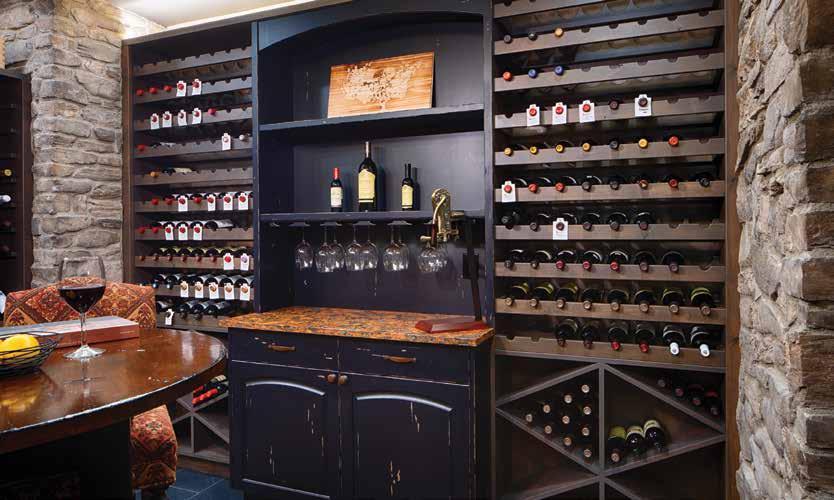
Back in March, Oldham acquired a desktop-sized recycling system capable of producing 3-D printer filament from singleuse plastics. The thought of starting with an empty blueberry container and ending with a “brand-new” coffee mug or phone case excites Oldham.
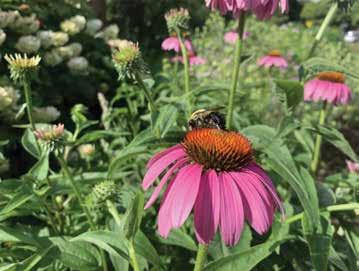
“To be able to take this trash we already produced and turn it into something we were going to buy, it’s just really interesting to me,” she says.
Continuing to engage with the TriVillage and wider Columbus communities is high on Oldham’s priority list as well.
Past collaborations – including teaching classes at local schools, leading a seed paper workshop at 934 Gallery and participating in the Upper Arlington Public Library’s 2023 Sustainability Fair – have left her feeling optimistic.
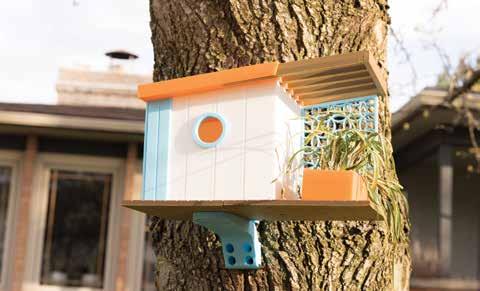
“I’m just trying to use whatever small sphere of influence I can, and the skills that I’ve built up over 13 years in digital marketing, to try to spread the mission of sustainability,” Oldham says.
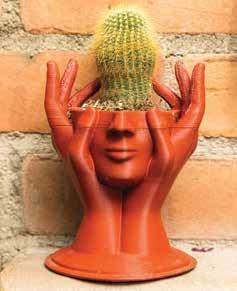
Lucy Lawler is an editorial assistant at CityScene Media Group. Feedback welcome at feedback@ cityscenemediagroup.com.








